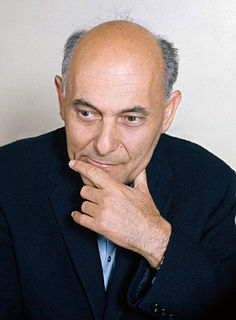A Quote by Irvin D. Yalom
From the very early days of seeing patients, I noticed that many of them seemed to be concerned with issues of their mortality, and so the philosophy training I had taken began to seem rather important to me.
Related Quotes
One of the patients that really stands out for me was a middle-aged woman who actually had HIV in the early days, and helping her kind of come to terms with that. She had rather late-stage illness, but just helping her, sort of cope with the challenges of the disease and the infections and all that, but also her social issues, like, coming out to her family about the illness, and a very religious family.
There was a beauty in the trash of the alleys which I had never noticed before; my vision seemed sharpened, rather than impaired. As I walked along it seemed to me that the flattened beer cans and papers and weeds and junk mail had been arranged by the wind into patterns; these patterns, when I scrutinized them, lay distributed so as to comprise a visual language.
The rhythm of music is very, very important for people with Parkinson's. But it's also very important with other sorts of patients, such as patients with Tourette's syndrome. Music helps them bring their impulses and tics under control. There is even a whole percussion orchestra made up exclusively of Tourette's patients.
Work on causal theories of knowledge - early work by Armstrong, and Dretske, and Goldman - seemed far more satisfying. As I started to see the ways in which work in the cognitive sciences could inform our understanding of central epistemological issues, my whole idea of what the philosophical enterprise is all about began to change. Quine certainly played a role here, as did Putnam's (pre-1975) work in philosophy of science, and the exciting developments that went on in that time in philosophy of mind.
Then, at age 20, I discovered theater sort of by accident. Quite quickly, theater became more important to me than music. I began to realize that maybe my talents as a musician were quite limited, or had a ceiling to them, whereas acting seemed to sort of stretch before me. I got very passionate about it very quickly.
"There are one or two elementary rules to be observed in the way of handling patients," he remarked, seating himself on the table and swinging his legs. "The most obvious is that you must never let them see that you want them. It should be pure condescension on your part seeing them at all; and the more difficulties you throw in the way of it, the more they think of it. Break your patients in early, and keep them well to heel."
The organizers first job is to create the issues or problems, and organizations must be based on many issues. The organizer must first rub raw the resentments of the people of the community; fan the latent hostilities of many of the people to the point of overt expression. He must search out controversy and issues, rather than avoid them, for unless there is controversy people are not concerned enough to act. . . . An organizer must stir up dissatisfaction and discontent.
Philosophy is the art of dying.Philosophy is an activity that has always been concerned with how one seizes hold of one's mortality, and I see myself continuing a very ancient tradition that goes back to Socrates and Epicurus, which is that to be a philosopher is to try and learn how to die. In learning how to die, one learns how to live.
What is now called 'green architecture' is an opportunistic caricature of a much deeper consideration of the issues related to sustainability that architecture has been engaged with for many years. It was one of the first professions that was deeply concerned with these issues and that had an intellectual response to them.
What is now called "green architecture" is an opportunistic caricature of a much deeper consideration of the issues related to sustainability that architecture has been engaged with for many years. It was one of the first professions that was deeply concerned with these issues and that had an intellectual response to them.
I drifted into a career in academic philosophy because I couldn't see anything outside the academy that looked to be anything other than drudgery. But I wouldn't say I 'became a philosopher' until an early mid-life crisis forced me to confront the fact that, while 'philosophy' means 'love of wisdom', and 'wisdom' is the knowledge of how to live well, the analytic philosophy in which I had been trained seemed to have nothing to do with life.





































